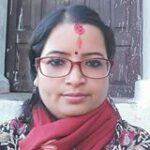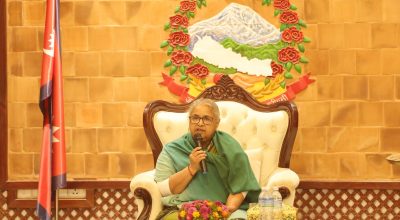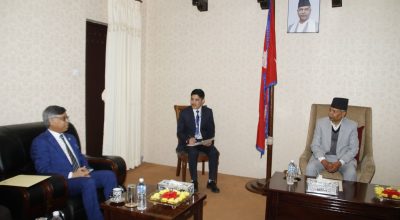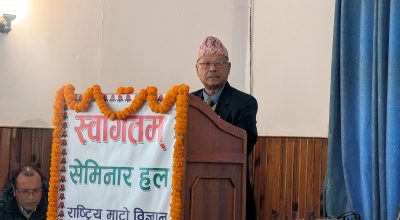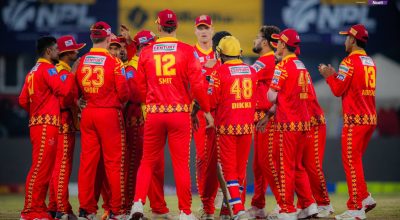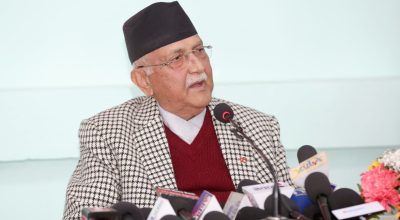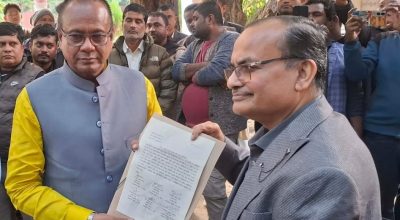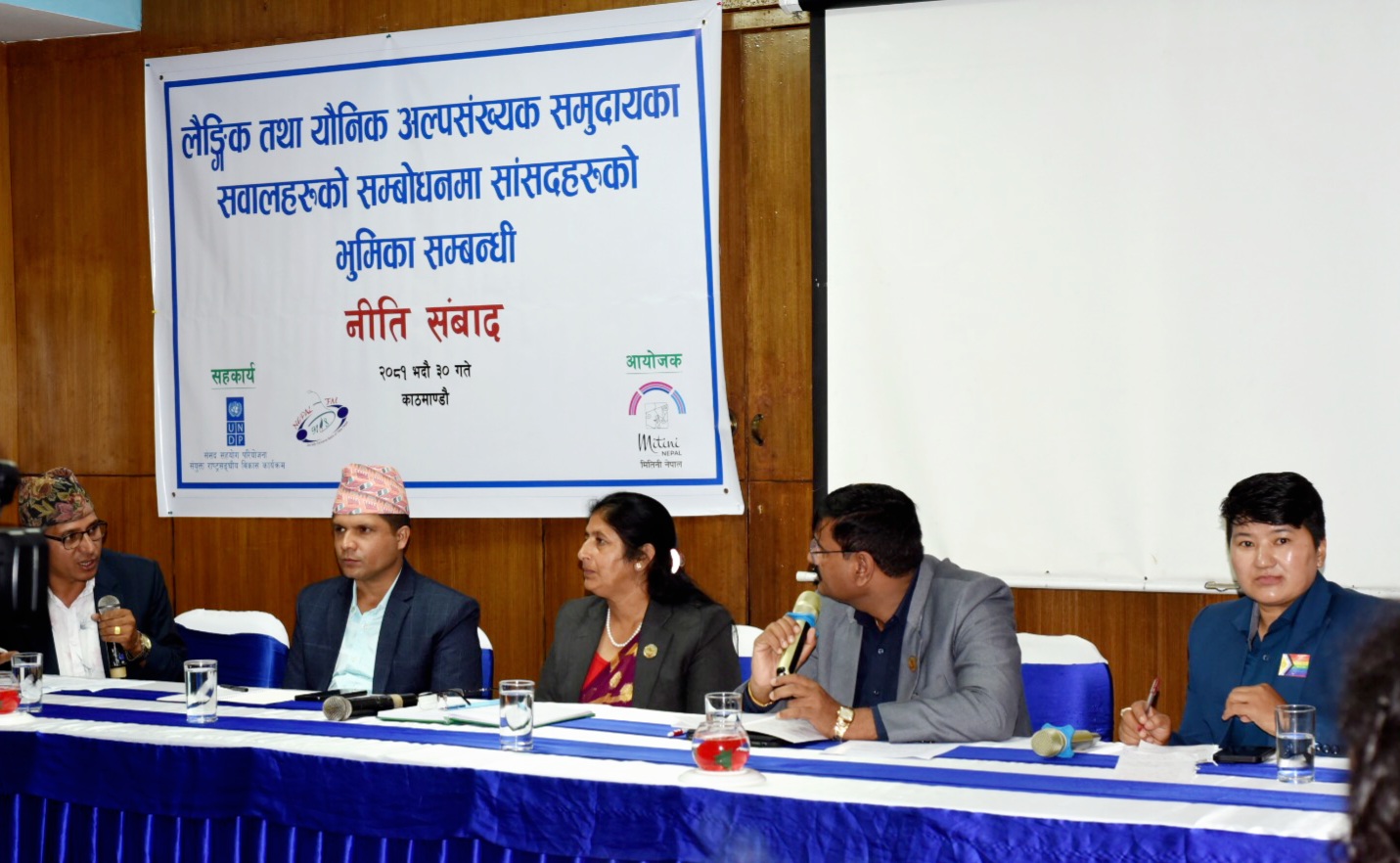
Pabitra Guragain
Kathmandu, Sept 15: The feeling of a split and incomplete human beings in a society with struggles abound has dogged the sexual and gender monitories. “How much should we struggle and wait for the treatment a human being deserves here,” they cried out univocally.
Stories of the people belonging to the sexual and gender minorities being victimized in the hand of the unjust society were shared before lawmakers and the media amidst a programme organized in the federal capital on Sunday.
“I identify myself as a transgender man, this is to say, I am a male who has a uterus. I was born with female genitalia and by the time I started thinking, I regarded myself as a male,” reminded Samyog KC on his experience of being excluded from family inheritance due to his gender identity. Despite his father’s acceptance, his relatives treated him as an outlandish and denied a share of the family property.
He and his partner are in a dilemma whether to pursue an adoption of a child in the wake of numerous obstacles spanning from obtaining a birth certificate for a baby to schooling and employment owing to entrenched social ills and the economic and legal hurdles.
Sarita Ruchal, a bisexual woman, spoke about her aspiration for motherhood, but the legal hurdles including the issues related to birth registration, citizenship for her child, and barriers to employment and identity crisis in society. She urged the State to recognize the diversity within the gender and sexual minority communities, calling for acknowledging the diversities within these communities by caste, class, and background and their collective and specific needs accordingly.
Similarly, Laxmi Malla, an individual born with male genitalia but identifying as a woman, expressed frustration with the lack of legal recognition and support for the community like her. She turns 66 today and has no strong economic status but hopes to get the social security allowance. Yet, he fears the legal ground that absolutely fails to prove her eligible for the same.
The overarching question posed by the participants was whether all humans, regardless of gender or sexual orientation, are entitled to human rights and whether it is the State’s responsibility to create an environment where they can live with dignity.
Laxmi Ghalan, the founder President of Mitini Nepal, reflected on the progress made in creating spaces for expressing identities and concerns. However, Ghalan highlighted that while it has become easier to voice these issues, the pain and violence faced by this community persist.
“Members of these communities continue to experience abuse and suppression from all sectors of society, including family, society, and the State,” she said as the panelist. Ghalan who has been in a battle for the State’s recognition of marital status said, “We face numerous issues in multiple fronts.”
They have grievances towards the State for not exploring their issues and concerns, and being apathetic to address the issues they have raised. Ghalan is a lesbian activist.
It was informed that such community faces citizenship issue, or is generally denied citizenship on the basis of its specific sexual and gender identity.
Sharing his presentation at the event titled, “Roles of Parliamentarians in Addressing Issues Concerning Gender and Sexual Minorities”, advocate and FWLD executive director Sabin Shrestha pointed out the faults in the constitution that encourage the State and the state bodies to act ‘regressively’ on the issues of the sexual and gender minorities.
He highlighted that the constitution defines (Article 306) that minorities unless the subject or the context otherwise requires, means ethnic, linguistic and religious groups whose population is less than the percentage specified by the federal law, and includes groups that have their distinct ethnic, religious or linguistic characteristics, aspirations to protect such features and subjected to discrimination and oppression.
“The definition omits the presence of sexual and gender minorities,” he said, calling for correction.
On the occasion, the lawmakers said the experiences shared by the monitories were in deed heart-wrenching and they are now more aware of the need to address all these gaps and prevent ways that block the way towards realization of advancement and fulfilling lives by the gender and sexual minorities.
President of the Women and Social Welfare Committee, Kiran Kumar Shah, and President of Law, Justice and Human Rights Committee, Bimala Subedi, were among those sharing a panel with the representative from the community. They said they were liberal to make their agenda the agenda of parliamentary discussions and urged the community representative to cooperate with them accordingly.
Joint Secretary at the National Human Rights Commission, Navaraj Sapkota, vowed cooperation for improvement of the rights of that community.
The programme was organised by the Mitini Nepal and supported by the UNDP’s Parliament Support Project and the Nepal FM Network.
The Mitini Nepal is a non-governmental organization working for the rights and dignity of women with LGBT identity since 2005 in Nepal. #MitiniNepal #lgbt #nepal




